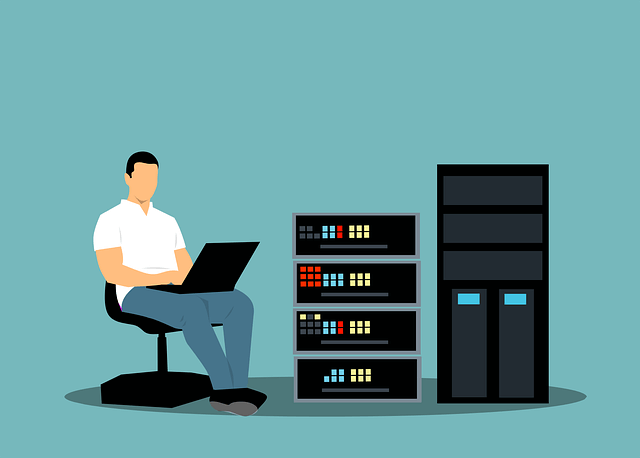 Many business owners and company executives around the world choose virtual data rooms as a reliable solution to secure complex deals and establish efficient collaboration on the team.
Many business owners and company executives around the world choose virtual data rooms as a reliable solution to secure complex deals and establish efficient collaboration on the team.
What is a virtual data room? How does it secure your sensitive corporate documentation? What are virtual data room services usually used for, and what are the advantages of implementing online data room software in your business? Read the short article below to get answers.
What is a virtual data room?
A virtual data room (VDR) is online software that provides a cloud-based repository for secure data storing and sharing. Virtual data rooms take advanced security measures to ensure high privacy and confidentiality of critical business information.
A virtual data room is often regarded as an electronic data room, online data room, virtual deal room, or VDR.
Evolution of data rooms
Before virtual data rooms appeared, companies used physical data rooms.
They were basically physical buildings, where all confidential documents and other critical data were stored in filing cabinets. Such buildings were thoroughly guarded so that no third party could reach important information.
However, any time partners or prospective investors wanted to review any documents, they would need to be physically present there, which was sometimes impossible or difficult to do. Also, managing a large space required lots of money and effort, which often was far from cost-effective.
The introduction of virtual data rooms solved all those issues.
Difference between virtual data rooms and cloud storage
From first sight, virtual dataroom software and popular cloud storage like Dropbox serve the same purpose — both solutions were created to store large volumes of information online.
However, they differ greatly when it comes to their security measures.
Virtual data rooms are considered more suitable for sharing and storing confidential business information since they offer more advanced security. Whereas cloud storage would perfectly fit personal needs like storing family photos or videos since the security features they provide are less advanced.
What is an electronic data room used for?
Virtual data rooms are used in any type of business or industry where secure data storage is needed. However, there are several most common VDR use cases.
Mergers and acquisitions (M&A)
When two companies decide to merge or one takes over another, the due diligence process becomes an integral part of the deal.
During due diligence, the buy-side reviews all important information and documentation of the target company. It’s critical for the sell-side to prepare all required documents and ensure their security and confidentiality when sharing with third parties.
Luckily, virtual data rooms easily solve both challenges, helping the buy- and sell-side meet their needs. Discover the best virtual data rooms for M&A here: https://www.idealsvdr.com/ma-data-room/.
Fundraising
To get the attention of prospective investors, startups or big corporations that seek extra investment should gather lots of information in one place and present it in a clear way. And it’s also essential to ensure high-end security for all documents that are stored online.
Again, virtual data rooms help with both issues.
Strategic partnerships
With virtual data rooms, potential partners can reach important documents anytime and from anywhere, which significantly accelerates the deal-making process. It’s also easy to set permission rights and ensure that only the right persons have access to critical information.
Board communications
Online data room software is an efficient way to establish collaboration with the team during the deal or when working on a particular project. Virtual data rooms offer a variety of features for effective cooperation, tracking, and reporting.
What security measures do virtual data room vendors provide?
Below are the services most modern virtual data rooms offer to ensure high-end security of your business-critical data:
- Security certification and compliance. Top VDR vendors are usually at least ISO 27001 certified and SOC 1, 2, and 3 compliant.
- Multiple data centers. To protect your data on the physical level, VDR providers locate their data centers in different parts of the world.
- Two-factor authentication. Every VDR user will have to verify his identity before entering the virtual data room.
- Document security features. With the help of such features as dynamic watermarking, redaction, and fence view, VDR vendors offer an extra layer of security for your data.
- Access security features. Virtual data room administrators can set access and document permissions so that no third party will be able to reach confidential information.
Benefits of using virtual data rooms
This is what advantages you get when implementing virtual data room software in your business
- Enhanced security. Modern VDR providers offer a variety of security features and measures to guarantee the confidentiality of your corporate data.
- Effective collaboration. There’s a Q&A section inside many data rooms that helps to discuss any arising issues in a timely manner.
- Round-the-clock availability. Considering the fact that a virtual data room is a cloud-based platform, you can reach it anytime and anywhere provided you have a stable internet connection.
- Customization options. You can give a virtual data room your company branded look and feel with the help of dedicated features provided by the majority of vendors.
- Variety of features. Virtual data room providers offer various document security, document management, access security, reporting, tracking, and user management features that help to improve collaboration on the team and accelerate deal making processes.
To conclude
Modern virtual data rooms offer enhanced security for storing and sharing critical information online.
Compared to typical cloud storage solutions, VDRs focus on data safety more and best fit the business needs of small and big companies.
Online data room services are widely used in M&A, fundraising, board communications, and strategic partnerships.
Among the most common security measures VDRs provide are security certification and compliance, document security features, two-factor authentication, multiple data centers, and access security features.
By implementing VDR in your organization, you ensure enhanced security of your business data, improve collaboration on the team, and facilitate business processes.









